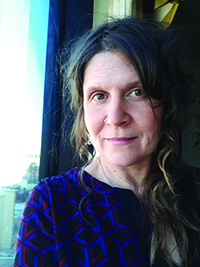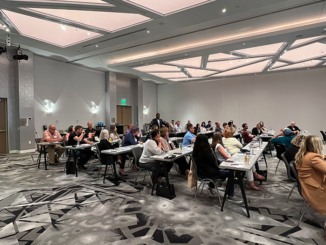By / Jessica Kirby
Editor, Sheet Metal Journal – Western Washington

Pandemics are no small deal. The world has changed forever, and the events of the past seven months will resonate with us from this day forward. Our children’s children will participate in habits and ways of life that will have resulted from COVID-19 in 2020, but by then they may not know the reason for those habits and ways of life. They will just be.
While we process and understand what is happening in our communities, how we are responding, and what the way forward looks like, we talk about many, many things. We talk about the economy, the workforce, capital budgets, and the state of the industry. We talk about health care, testing, diagnoses, and vaccination. We talk about masks, hand sanitizer, social distancing, and quarantine. We talk about fear, anxiety, false information, speculation, and exaggeration. We talk to understand and when we understand we change and adapt. Such is the human condition.
But we seldom talk about a simple principle that is making a huge dent in the effects of COVID-19, not the physical illness effects, but the byproducts of a phenomenon that generates fear and anxiety around performing normal, every day functions. The principle is kindness.
I don’t mean hippy-flippy flowers in your hair kind of kindess (although that is okay, too) but general, every day reaching out, welcoming, doing for others courtesy and care. I am talking about checking in on each other, running errands for the elderly neighbour or immune-compromised relative. I mean a nod or hello to someone passed on a walk down the street and taking a moment to say, “How is your day?” to the person ringing up your groceries.
These actions, par for the course in 2019, are stretched thin. People are afraid to talk to strangers, hesitant to help someone who has dropped their glasses, keen to avoid unnecessary eye contact. Although it is natural and expected to take space and keep our bubbles small, that undercurrent of everyday kindness between strangers is but a trickle in some places, and whether we acknowledge or realize it, we feel it.
An act of kindess, given or received; a moment of attention, no mater how brief; an encouraging nod, with a warm smile behind it, create a surge of dopamine in the brain that helps us feel good. When we feel good, we do good and our physical health improves.
I’m not saying, of course, that kindess can cure a pandemic. I am just saying that when chaos ensues and it is not easy to be kind, that is the best time to make the effort. As we head into flu season, keep in mind anxiety is up and that means these actions are more important than ever. Be curious instead of angry. Have empathy instead of frustration. And in situations where it is unclear how to react, above all else, be kind. ▪



